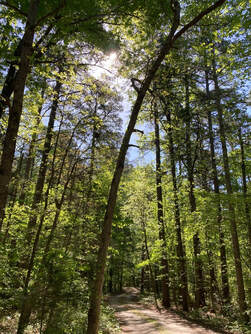 Southern Conservation Partners is honored to partner with Earthseed Land Collective in Durham, North Carolina and to have served as their 501(c )(3) fiscal sponsor since 2019. Zulayka Santiago in 2023 authored and published a wonderful collection of her essays, meditations, poems, photos, and perspectives on life and nature that focuses on her experiences and observations gained while in residence on Earthseed’s 48-acres of woodlands, meadows, and gardens in north Durham. Zulayka is one of seven founding members of the collective and co-steward of its property purchased in 2016. Triangle Land Conservancy holds a permanent conservation easement over nearly 30-acres of the land, primarily consisting of the forested portion and its streams. In our view, Zulayka’s writing is masterful, inspirational, and lovely. We highly recommend her book, Outside I Breathe Freely, for your reading and reflection.* Following are excerpts that may give you a taste of her sumptuous compositions. <click "Read More," below right >
0 Comments
We are pleased to share with you an Earth Day essay written by Thomas Wentworth, PhD, inspired by his experience at the "Three Sisters Swamp" of the Black River in eastern North Carolina. Tom is Alumni Distinguished Undergraduate Professor, Emeritus, Department of Plant & Microbial Biology, North Carolina Statue University. I visited BLK227 on a Tuesday for an interview. BLK227 is a Baldcypress tree (Taxodium distichum for the botanists) in the Three Sisters Swamp section of the Black River, a bit west of Burgaw, North Carolina. BLK227 was so named by Dr. David Stahle, who runs the Tree Ring Laboratory in the Department of Geosciences at the University of Arkansas in Fayetteville. BLK227 holds the current world record for documented age of any Baldcypress tree, 2,629 years old this year. That’s a minimum age, by the way, because Dr. Stahle had to core BLK227 at a height of 10 feet above the swamp floor, and it is unknown how long it takes for a Baldcypress seedling to reach 10 feet in height. That minimum age is impressive - that’s 629 years Before the Common Era. BLK227’s age firmly establishes Baldcypress as the oldest wetland tree species on Planet Earth, and number five on the worldwide list of the oldest known continuously living, sexually reproducing, non-clonal tree species based on dendrochronology, the scientific study of tree rings. < click "Read More" below right >
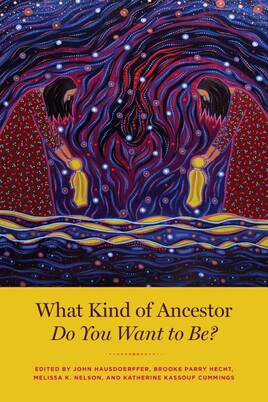 While recently browsing in my local independent bookstore, I spied a newly published collection of essays, interviews, and poems titled What Kind of Ancestor Do You Want to Be? (Univ. Chicago Press, 2021). Possibly due to my age and becoming a grandparent, and possibly because I recently researched the genealogy of my own family lineage (with fascinating discoveries and illuminations), I purchased a copy and found it thought-provoking enough to share with others. The editors explain that more than asking how we want to be remembered, the question--What kind of ancestor do you want to be?—suggests that we are ancestors, always and already, even if we are never remembered or never have children. The question deepens our awareness of the roots and reach of our actions and non-actions. Whether we like it or not and whether we know it or not, we are advancing values and influencing systems that will continue long past our lifetimes. These values and systems shape communities and lives that we will never see. The ways we live actually create and reinforce the foundation of life for future generations. We are responsible for how we write and convey our values, what storylines we further and set forth—for the world we choose to cultivate, for the lives that follow ours. So, how are we to live? The editors of this intriguing book state that this fundamental question is ever more important to ask in this time of global crises and uncertainties. The question catalyzes dreams and imagination and is relevant for all members of the human community. We are challenged to ask this question of ourselves, our family, our community. You too may find this collection of perspectives relevant, stimulating, and contributing to mindfulness. Whether or not you read the book, I urge you to ask this question of yourself. --Chuck Roe, President, Southern Conservation Partners 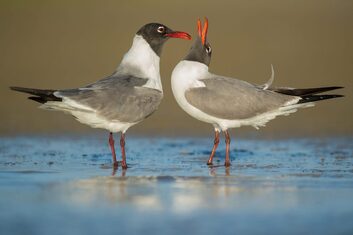 Photo by Jared Lloyd Photo by Jared Lloyd We really enjoyed the following essay, originally published in the NC Coastal Federation's Coastal Review Online. Many thanks to Coastal Review and to author Jared Lloyd, wildlife photographer and nature writer, for allowing us to reprint it here. I’m on the winter beach, wide, flat and cold. Cobalt-blue skies reign overhead. A biting wind rushes in from the northwest. It’s all so different up here on the northern Outer Banks, compared to the southern islands. The Labrador current and cold-slope waters create a dramatically different climate here, compared to those sandbars governed by the Gulf Stream. Seals will be showing up again soon enough. Mostly young harbor seals, but a few fat greys and even some harps, if we are lucky. The New England blues have already made it to town, and I can only assume stripers are in their mix. I’ve watched a parade of humpback whales migrating south past this beach for a month now already, their dark, shadowy masses drawing in birds for miles around, occasionally rolling over to lift a great wing of a fin out of the sea like a friendly neighbor waving hello, or goodbye, or maybe just flipping me the bird. <<continued...>> 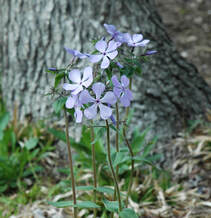 Photo by Laura Cotterman Photo by Laura Cotterman Waves of grief and anxiety wash over me. At a time when the world needs a hug, we just can’t. And all the public entertainment is gone--sports, movies, bars and restaurants. Even dining in the home of someone you love puts you at greater risk. I’ve given up seeing my 2-year-old and 6-year-old grandsons. It's heartbreakingly sad, and everyone is saying the worst is ahead of us. Death will come to some we love. But rebirth is all around us because spring is here and there is resurrection in that green wood. You can still find peace and great joy. Go outside. Go to the woods. Be very present. Let your thoughts pass like the clouds and really see what is here now and your stress will disappear. Unlike those in Italy and China, we are not confined to our homes. We live in a beautiful green garden. This is the blessing. This can be our salvation. Go. Walk around your yard. Yell across the driveway to your neighbor. Decide where you’ll plant your garden. Feel the breeze. Listen to the birds. See the trees reaching upward to the heavens. You can stretch and reach, too. You can put your arms around that tree and hug it. Believe me, it will help you heal. Neuroscientists have studied it. It can also boost your immunity and is a tonic for stress and grief. It could save your life. Jesus went to the mountaintop to pray. Buddha sat under the spreading branches of a fig tree with its heart-shaped leaves. They found the “peace that passeth understanding.” You can, too. Water heals. Turn over the rocks and see the life on the underside. Skip a stone. Take your kids fishing. Walk alongside a stream. Listen. The sound of water, the gurgle, babble, splash soothes. So much life abounds it will renew your hope. --Kathleen Williams-Mooradian, Southern Conservation Partners Board Member (Essay originally published on April 9, 2020, in The Tennessean ) In this time of peril and anxiety, we at Southern Conservation Partners offer our best wishes for health and security to our community of friends, supporters,website visitors, and all stewards of nature. None of us know the forthcoming full dimensions and consequences of the expanding pandemic on our society, on the economy, on our own families and loved-ones. The quarantines, travel curtailment, and cancellations further stress and isolate us. We can only hope for recovery and return to better health and sensibility.
The current global human health, economic, and political crises—and the cascading deterioration of the Earth’s biota and ecosystems generated by our altered global climate—hopefully give us pause and cause for reflection and sincere thought about how we humans are profoundly interconnected with the health of our Earth’s environment and its support systems. A central lesson to be learned or reinforced is to more keenly realize the interconnections among us humans and with the natural world. We recommend that you and your family and loved ones find solace and inspiration outside in nature. Without access to most of our regular activities—with our work places, schools, restaurants, stores, museums, public libraries closed—try to increase your time in nature. Find outdoor recreation and restoration of spirit in a local park, walk a trail, bike a greenway, paddle on a favorite pond or stream, cultivate and expand your home garden and native wildlife-friendly plantings. It’s extraordinary to step outside and reconnect with nature. You will find solace and satisfaction and peace in the “wild places” that are immediately close by. Nature and wild things around us offer to stitch back together the health of our planet and communities—the place we know as Home. Take a pledge in these unsettled times to be a better friend of nature and better citizen of your whole human and natural community. Slow down, breath deeply (best done on a natural trail or even in your own backyard), and recommit to preserving and restoring wild and natural places. And help your neighbors and community to survive and recover. Keep on fighting the battles for right thinking and actions. Be hopeful and contribute to making your community and country and Earth more healthy and resilient. Now step outside into your own piece of nature! [And if the weather or time isn’t right for outside spiritual restoration, we suggest you add reading more of our website’s Viewpoint essays, along with re-reading from your stockpile of favorite inspirational books at home or on the internet.] —Chuck Roe, president, Southern Conservation Partners |
When we see land as a community to which we belong, we may begin to use it with love and respect.... Conservation, viewed in its entirety, is the slow and laborious unfolding of a new relationship between people and land." There is in fact no distinction between the fate of the land and the fate of the people. When one is abused, the other suffers. From the PresidentSCP President Chuck Roe looked at land conservation along the route of John Muir's "Southern Trek." About ViewpointThis blog offers views of our Board and partners. We invite your viewpoint on the following questions: Archives
April 2024
Categories
All
|

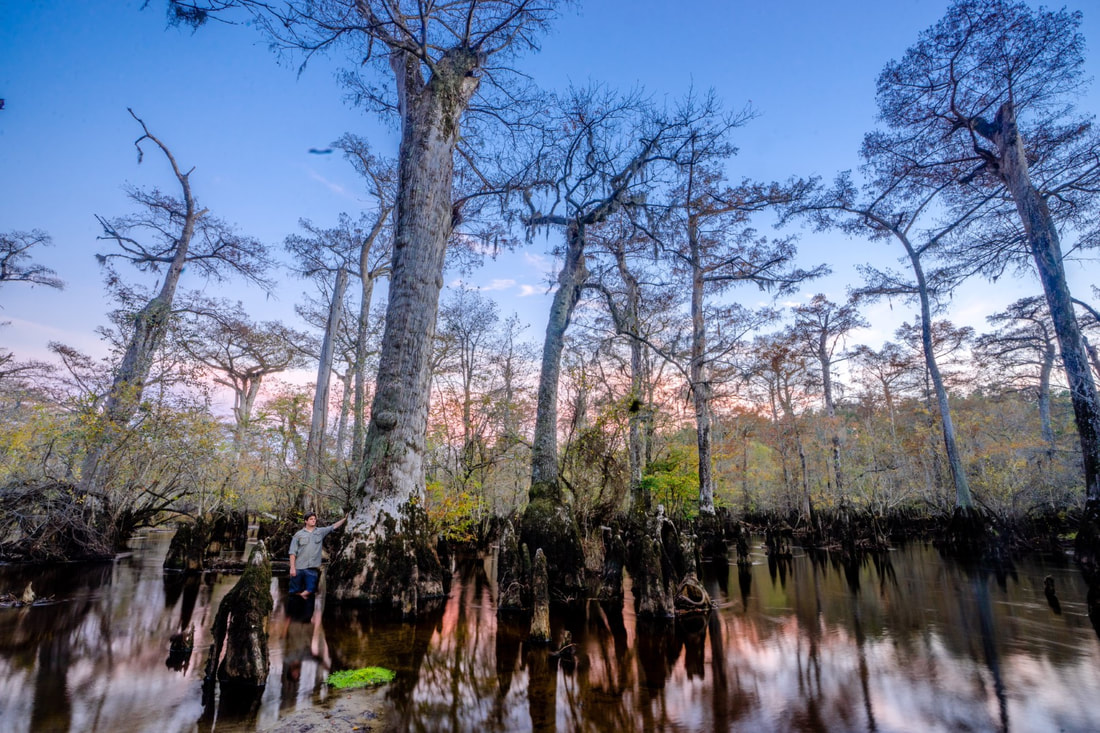
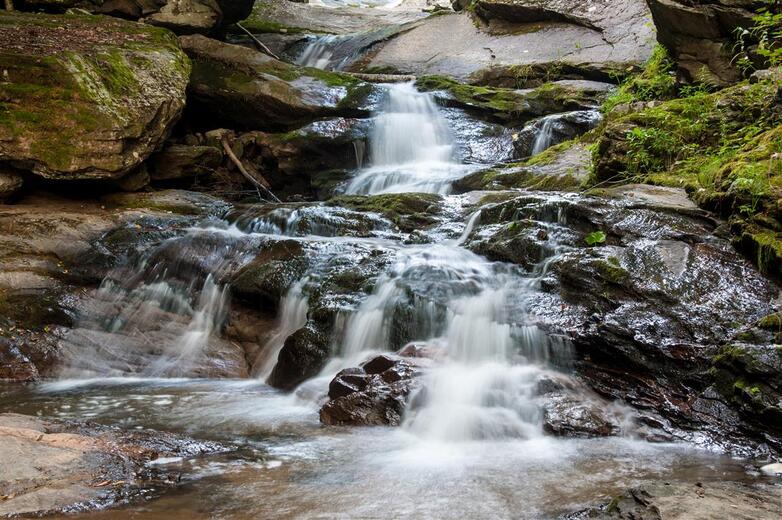
 RSS Feed
RSS Feed